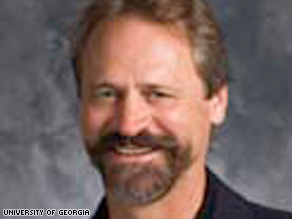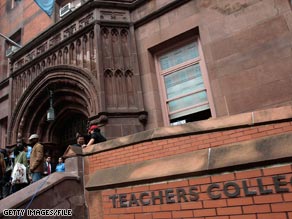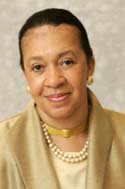![[n763872271_266606_7712.jpg]](https://blogger.googleusercontent.com/img/b/R29vZ2xl/AVvXsEiYqNjzWFo7PTk71toxL1ubiLmvMANhI1gtrfVS4tw7MO74W0moAWaju8FJQyPV4NULSwaeYk3DOfDas-eybE0ZiCdvpV_jDqukeVFaV97BAMfuYlSo0qvvAd6VfJxsSeUL7hc0UH6dkTy6/s1600/n763872271_266606_7712.jpg)
by Dr. Boyce Watkins
www.BoyceWatkins.com
I wake up with strange thoughts on my brain. This morning, I woke up thinking about which Black scholars I feel have given the most to the Black community. My respect and appreciation for all Black scholars (even those who do not have PhDs) is without limit. But there are some that I feel have gone out of their way to be progressive enough to think outside the box and to have a true and real impact on the Black community.
I do not believe that scholarly contributions to the Black community are defined by writing a bunch of research papers that no one ever reads (although I’ve done plenty of that in my own career as part of my job description). I don’t think your contribution is captured by whether or not you have a chair at Harvard University (interacting with 4 or 5 privileged Black students a year) – although it’s okay to have a chaired position at Harvard. Much of the elitism of academia has always been a turnoff to me, since I believe the proof is in the potato salad. If your work is affecting real Black people and changing real Black lives, then you have my respect. If you are sitting in the ivory tower, claiming the masters house and hiding behind artificially constructed, racially-biased historical privilege which allows you to presume that you are better than everyone else, then you will have to be on someone else’s list. My belief is that a scholar should have SCHOLARLY IMPACT – which can be measured by the breadth and depth of impact your work has had on your target audience, as well as the size and scope of that audience. A journal with 50 readers per year does not possess sufficient breadth, depth or quality of impact to merit a meaningful career, in my opinion. Sure, it’s fun to publish in those journals, but after that, you may want to get out here and make a difference in that scary place called “the real world”.
Of course my opinion is not the only one out there. But I must confess that I was shocked at how many of our intellectual leaders aren’t leading anyone: many of us are quick to follow and promote the questionable norms created by our academic predecessors. We in academia are not much different from politicians who forget to serve their constituents, or pastors who, in their own quest for personal power, neglect to serve their Lord. Such small thinking is incredibly dangerous in Black America, since we really need our scholars to solve vital problems in our communities. We must accompany our capacity with sufficient courage to speak openly and honestly about the issues that affect those we love. In physics, force equals mass times acceleration, which means that we must connect our scholarly mass with social acceleration to create the necessary force to solve real and meaningful problems.
My dissertation chair (Rene Stulz at Ohio State University), is one of the leading 3 non-Black Financial scholars in the world (as measured by the number of publications in our so-called premier academic journals). He thought I was insane for choosing the career path that I picked, especially since he seemed to believe that he'd laid out the golden path for me as a Financial scholar (you know, all that Ivy League professor, top journal stuff that makes a small group of people think you’re special). But what I had to explain to Rene was that God has given me a different path: one in which I had to disengage from the pettiness of academia and pursue a more powerful purpose. The challenges of Black America call for active, interdisciplinary thought that is not afraid to challenge ideas created on an undeniably skewed racial foundation….we can’t afford be like everybody else – the waste is just too great. Rene still looks at me like I’m crazy when we see one another, but I respect his choices and I think he respects mine.
Now, onto the list of my favorite Black scholars – the list is in no particular order and if a certain scholar is not in the top 10, that doesn’t mean I don’t respect that individual. But there are some prominent names missing from the list, and I’ll let you guess why they aren’t there:
1) Dr. Marc Lamont Hill (Columbia University) – Marc impresses me as the brightest young mind of the 21st century. Marc is not just as sharp as a butcher knife, he is also a true brother who really understands the problems of the Black community. I cannot tell you how much Marc struggled to build his career, it was tough to watch. But Marc is not just brilliant, he represents the essence of that concept called “Survival of the fittest”. The best is yet to come.
2) Peniel Joseph (Harvard University/Brandeis University) – Peniel, who wrote a book on Barack Obama recently, is not just a brilliant scholar, but a great person. His work is second to none and his analysis on PBS is right on point.
3) Cornel West (Princeton) – Who can forget Cornel? Our great academic father deserves respect for opening the door to the possibility of pursuing true Black scholarship that is relevant to the world around us. Cornel’s battles at Harvard prepared me for the challenges I would encounter here at Syracuse. This man will be in the history books and he deserves to be there.
4) Michael Eric Dyson (Georgetown University) – Michael (we call him “Mike”) was the reason I became a publicly engaged scholar in the first place. I remember watching him on BET in the 90s with my jaws dropped, saying, “Damn, I wanna be like that guy!” While I eventually developed my own style (Mike and I differ in many ways), I can say that Michael’s commitment to hip hop culture and his amazing swagger simply cannot be stolen or emulated.
5) Dr. Fritz Polite (U. Tennessee) – Fritz is one of the leading advocates for Black male athletes in America. He also carries the kind of strong and assertive style that should embody all progressive Black male intellectuals. Many of us have the ability to be strong, but we choose to walk in fear and silence. Fritz does no such thing.
6) Dr. Billy Hawkins (U. Georgia) – Billy’s recent commentary about Black male athletes was one of the most powerful and poignant statements I’ve seen in a while. I love it when Black men attack an issue head-on, instead of skirting around it for fear of losing our jobs. In order for there to be progress, men must be willing to take the lead. The fight is not with our muscles, it is with our minds. Intellectual athletes like Billy Hawkins are far more impactful than Black male professional athletes, who have unfortunately relegated themselves to psychological and financial slavery.
7) Dr. Juan Gilbert (U. Auburn/Clemson University) – President of the Brothers of the Academy (the largest group of Black male PhDs in America), Juan is an amazing visionary and a powerful guide to young Black students. He is also one of the premier computer scientists in the world and a highly impactful scholar.
8) Dr. Julianne Malveaux (President – Bennett College) – The only thing you can say about Julianne is “deeyamm”. She, along with Michael Eric Dyson, were the two greatest reasons for my becoming a publicly engaged scholar. Also, as the only other publicly engaged scholar who deals with Financial issues, I have learned a lot from Julianne as a mentor, colleague and friend.
9) Dr. Wilmer Leon (Howard University) – Wilmer is the host of “On with Leon”, an XM satellite radio show. As an expert in Black Political History, Wilmer has been highly impactful when it comes to educating the Black community on critical socio-political issues. His meticulous, educational style of information sharing should be given a larger platform.
10) Dr. Christopher Metzler (Georgetown University) – Chris wrote an article about Academic Imperialism that simply knocked my socks off. I called Chris on the phone to talk with him, and found him to be the kind of Black scholar we need in America today. Educated at Oxford, Chris has exactly the type of global perspective that we need from African American intellectuals.
Ok, that’s “Boyce’s Top Ten”. I put together this list based on the scholarly impact of my colleagues, rather than how many publications they have in specific journals or the university with which they are affiliated. This is the kind of list that is built on courage. In my opinion, if you’re not out there doing YOUR thing, then you’re not out there doing ANY thing. We’ve spent all of our time doing THEIR thing, and now it’s time to start doing OUR thing.
Dr. Boyce Watkins is a Finance Professor at Syracuse University and author of “What if George Bush were a Black Man?” For more information, please visit www.BoyceWatkins.com.




![[n763872271_266606_7712.jpg]](https://blogger.googleusercontent.com/img/b/R29vZ2xl/AVvXsEiYqNjzWFo7PTk71toxL1ubiLmvMANhI1gtrfVS4tw7MO74W0moAWaju8FJQyPV4NULSwaeYk3DOfDas-eybE0ZiCdvpV_jDqukeVFaV97BAMfuYlSo0qvvAd6VfJxsSeUL7hc0UH6dkTy6/s1600/n763872271_266606_7712.jpg)



